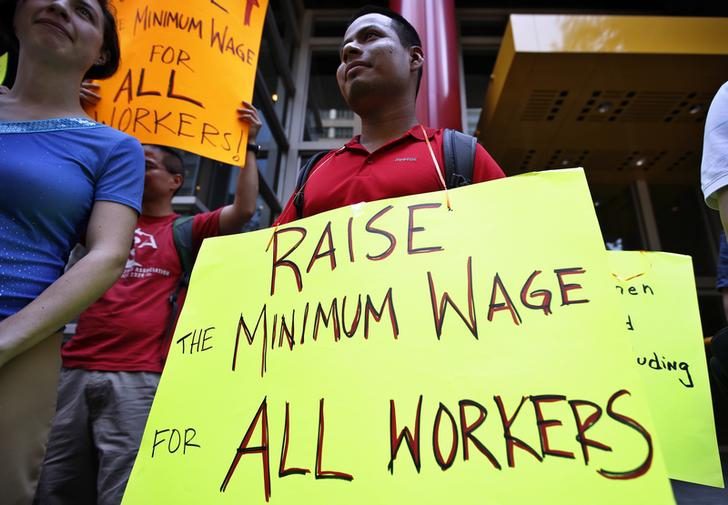While a higher minimum wage benefits workers, it can be detrimental to small and large businesses
Ontario Premier Kathleen Wynne faces an uphill battle in her bid for re-election, so she's tossed out a few political goodies in an attempt to increase her popular support before next year's vote.
Her biggest gift or sop, depending on your perspective is a significant increase to the minimum wage.
Workers in Ontario now get a minimum of $11.40 an hour. The provincial government will adjust this slightly to $11.60 in October, followed by a massive hike to $14 by Jan. 1, 2018. (Ed. note: the next provincial election is scheduled to be held on or before June 7, 2018.) The number will then reach $15 an hour by 2019.
In the Liberal government's view, this can be a huge vote-getter. Although only 10 per cent of Ontario workers earn minimum wage, roughly 30 per cent of all workers make less than $15 an hour. By increasing wage standards, the government believes more families can survive rising living costs and that would improve overall living standards.
The Liberals' economic strategy is flawed.
While a higher minimum wage benefits workers, it can hurt business small and large. You know, the organizations that employ these individuals and pay their salaries.
If minimum wage is increased by an incremental amount, such as this October's adjustment in Ontario, most businesses can handle it. There will obviously need to be some small fixes to items such as payrolls, benefit programs and annual profit margins. Nevertheless, an incremental wage shift that complements the financial atmosphere is doable and recommended by many economists.
It's the second and third proposed increases that border on complete economic madness.
The rise from $11.60 to $14 would constitute an increase of roughly 20.7 per cent of the hourly minimum wage. A further hike to $15 would mean a 32 per cent total increase in just 18 months.
Many small businesses in Ontario couldn't begin to deal with these costs. Quite a few could be in real jeopardy of restructuring, downsizing or closing on or before these increases become set in stone.
Does the government care about this scenario, which would cause huge financial problems for the province?
That's up for debate.
"We know that there are small businesses, particularly some mom-and-pop businesses in our communities, that are going to have a challenge going through that transition," Wynne recently said.
Ontario Economic Development Minister Brad Duguid noted there will be some relief for small business owners, "likely on the tax side."
While that sounds nice, it would be a drop in the bucket compared to the economic upheaval businesses will soon face.
Consider the perspective of the Keep Ontario Working Coalition, which includes diverse groups like the Ontario Chamber of Commerce, Ontario Federation of Agriculture and Food and Beverage Ontario. An independently-commissioned Aug. 14 report conducted by the Canadian Centre for Economic Analysis said there will be a "$23 billion hit to business" and "185,000 Ontario jobs will be at immediate risk" in the next two years. And the Ontario government "would need to borrow $440 million more to cover the increases in new costs from this legislation."
The Liberals and their supporters believe raising the minimum wage is a sensible economic plan. But if you look at the nuts and bolts, and examine it from the perspective of Ontario businesses, the word "sensible" should be replaced with "senseless."
Wynne may truly believe her minimum wage hike is going to lead her to victory in 2018, but she had better be prepared for maximum voter rejection.
Troy Media columnist and political commentator Michael Taube was a speechwriter for former prime minister Stephen Harper.
© 2017 Distributed by Troy Media








